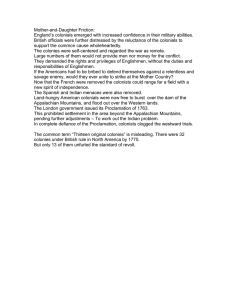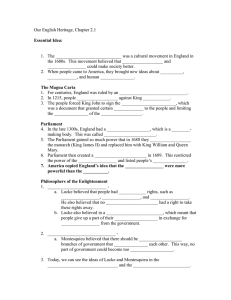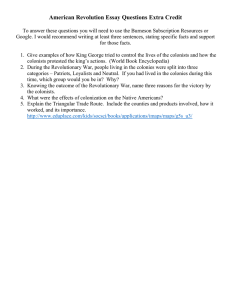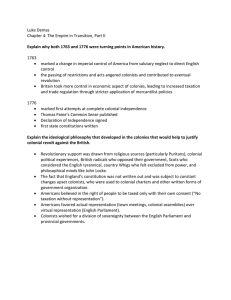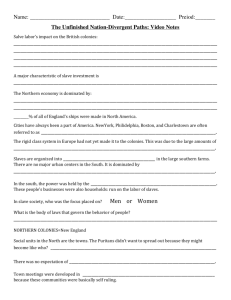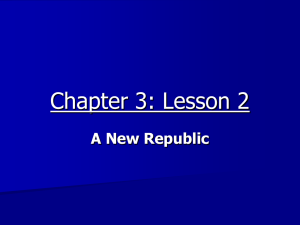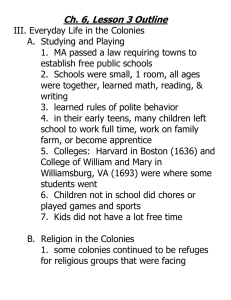Proclamation of 1763 – European/Native Land Claims on North American...
advertisement
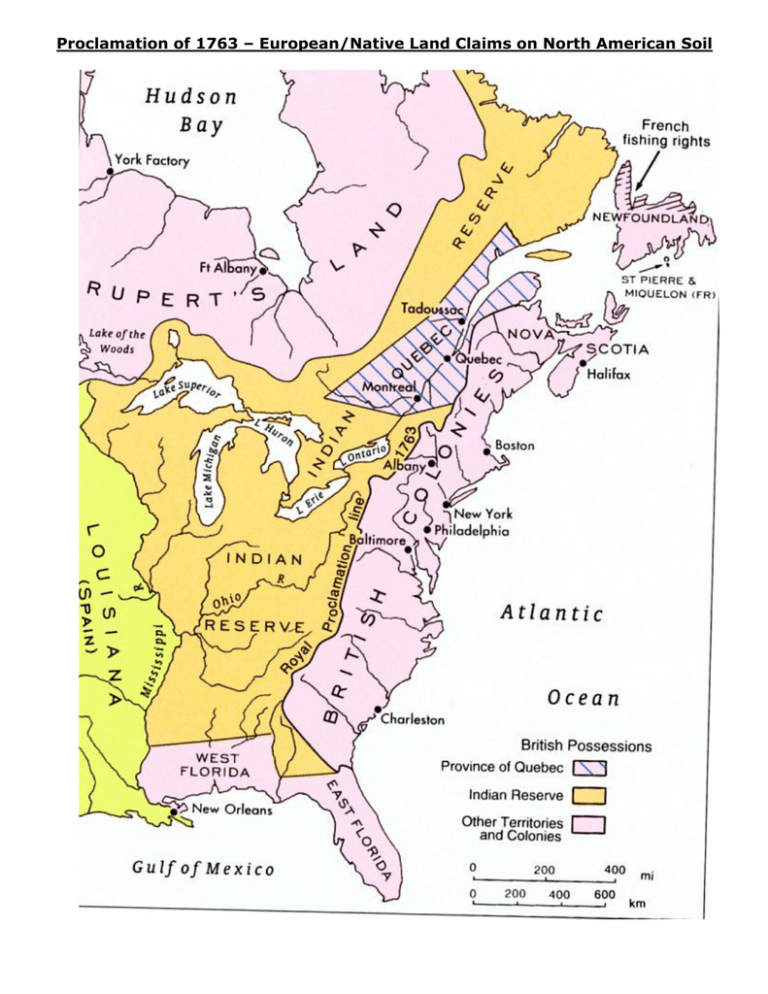
Proclamation of 1763 – European/Native Land Claims on North American Soil Effects of The Seven Years War On Britain 1) It increased her colonial empire in the America’s. 2) It greatly enlarged England’s debt which they forced the colonies to pay for. 3) Britain’s contempt for the colonials created bitter feelings. 4) The war demonstrated to the colonials how powerful the mother country actually was. On the Colonies 1) It united them against a common enemy for the first time. 2) It created a socializing experience for all colonials who participated. 3) It created bitter feelings towards the British that would eventually intensify. 4) The war demonstrated to the colonials how effective guerilla tactics could be against a huge, organized force. 4) The Taxation Issue - In the early colonial years, English parliament opted for a policy of Salutary Neglect or non-interference in terms of governing the colony. - Colonists were free to do almost as they wished simply b/c it was too far for the motherland to govern and enforce rules - The selection of George Grenville by Brit. Parliament signaled a change in policy - England was determined to make the colonies pay for the huge cost incurred to defend them during the French and Indian War. - Under the leadership of Grenville, the British gov’t passed several laws that were designed to collect revenue from the colonies and help restrict some of the freedoms they had previously enjoyed. (SEE CHART ON THE TAXATION ISSUE) - The colonists resented these new laws because they had no elected representatives in British Parliament to represent their interests - The ideas of British philosopher John Locke became very popular in the colonies. - Locke stated that gov’t existed to protect the life, liberty, and property of its citizens and therefore, had no right to take away any of these basic freedoms without their consent. - If a gov’t did so, the people had a right and a duty to resist and overthrow the gov’t with force. - “No taxation without representation” became a popular slogan in the colonies as more and more colonists became even more disenchanted and unhappy with their English rulers. - Freed from the danger of French attack, colonists believed they no longer needed British protection.
